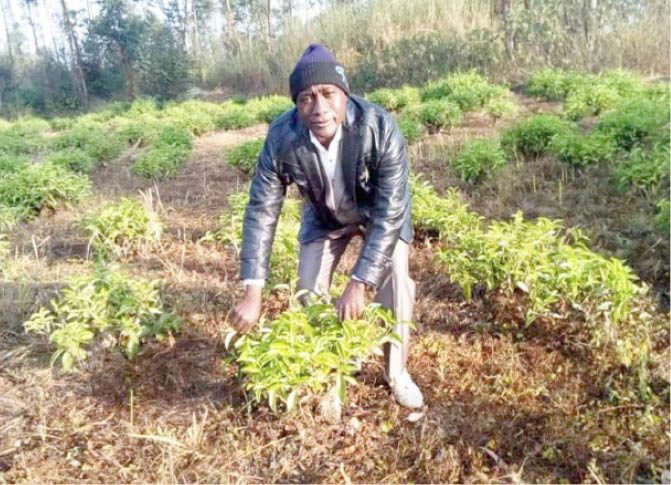Coffee and tea are cash crops that have been ignored by the Nigerian government despite its huge economic potentials. In this interview, the secretary-general of the National Coffee and Tea Association of Nigeria, Dr Usman Hassan Kakara, a tea farmer in Mambila, Taraba State, spoke on the state of the sector in the country.
Two years ago, I was in your tea farm and others and we talked about several issues affected production of the crops; what is its current state in Nigeria?
Let me start with tea production. We only have Mambila Beverages and Maisamari Tea Integrated Farms that are currently into production, with less than 2,000 hectares of plantation and other extension of land unplanted over 5,000 hectares.
The two companies, including the out-growers (the small-scale tea farmers that have production capacity of less than 700 hectares) have about 2,500 hectares of tea plantation with a production capacity of less than two million metric tonnes per annum. But the demand of tea in the Nigerian market for bulk tea is over 3.8 million tonnes.
Companies like Top Tea and Uniliver use the semi-processed, which is the bulk tea, as raw materials. Companies like Uniliver, Hiltop Tea, Top Tea etc import 3.8 million tonnes as source of raw materials. Each kilogram is sold at N1,100 per kg, so when you multiply N1,100 by 3.8 million, it will give you over N3 billion. Secondly, these companies also take the semi-processed to process along the value chain. They buy bulk tea and have employment capacity of over two million for processing capacity across 28 tea packaging companies in Nigeria. So when you look at the production capacity currently in Nigerian, the demand is high and the production capacity is far less.
Let us go to other tea companies that import finished processed tea. They are now using the Nigerian market for the finished products without us benefitting from any value chain activities. They include Sudan Tea, PG Tea, Richmond Tea, Akbar Tea, Sultan Tea and others. They only import already packaged tea over 5.3 million tonnes, so Nigeria is not benefiting from any of the value chain activities. When you convert it into naira, it would give you over N40billion.
We have two sectors in the tea industry. We have the production (the processed) producing less than two million tones. We have semi-processed import (that is the bulk tea) taking part of the value chain. That is from semi-processing, packaging and others. Companies like Top Tea, Unliver, Hiltop Tea, Citi Tea and what have you are taking part of the value chain that Nigerians are benefitting from because they cannot rely on the two production companies, Highland Tea and Mambilla beverages companies because the raw material they produce is not enough. So they have to import tea at over N36bn.
This is just for local consumption, if we have the capacity to meet the local market and export it, in tea production alone, Nigeria could reap better benefit, such as poverty reduction, employment through the value chain-production, processing and packaging. It would be able to create more than 10 million jobs if it is harnessed to it potentials. Development of rural infrastructure could be there. And it is environmental friendly because we are talking about deforestation, but with coffee and tea, it is afforestation making the environment friendly.
But since the production here is less, other countries are now taking the opportunities of the Nigerian market to either bring in semi-processed or finished products. There is the need for the government to put a high tariff on already finished tea. This would give opportunity for a common person to venture into tea farming. If attention is given to tea, Nigeria stands to benefit up to N500bn as revenue annually from local and international markets.
What about coffee production?
The production of coffee (both lowland and highland) in Nigeria is less than one million tonnes per annum due to lack of government’s intervention. Government is not taking the front seat in training, bringing improved varieties and soft loans. There is also lack of focus on the coffee and tea industry. Farmers have abandoned the sector and other people have taken it away. This discourages the farmers from increased production.
Presently, Nestle is taking a lead in coffee importation because there are no farmers. It has to import coffee from other countries.
Nigeria has a suitable land for coffee and tea production. Coffee and tea can extremely do well in the whole of South-South. It can also do well in the East, as well as the West. If government wants to focus on agriculture for diversification, then coffee, tea and cocoa must take the lead because they are cash crops.
What countries like Sri Lanka, India and China are making from tea is more than the budget of Nigeria for the whole year. Kenya depends largely on coffee and tea for her source of income. Brazil and Vietnam developed a roadmap for 10 years, and now, they are becoming largest producers in the world.




